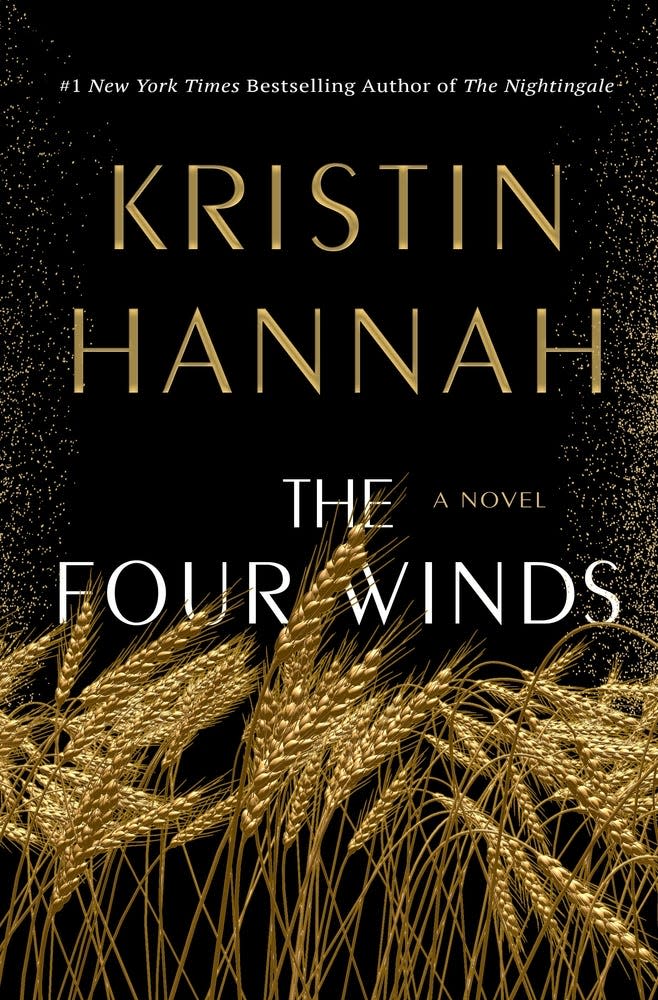Review: Kristin Hannah's 'The Four Winds' is a 'stirring' tale of love and hardship in Dust Bowl-era America
- Oops!Something went wrong.Please try again later.
Corrections & clarifications: A previous version of this story misidentified a 2018 film titled “The Nightingale.” The adaptation of Kristin Hannah's book of the same name has not yet been released.
As the Dust Bowl ravages Texas, one woman must make a choice: Leave the farm that has been her family’s livelihood or stay and risk succumbing to cyclones of dirt.
Kristin Hannah’s absorbing new novel begins just a few years before, when it seemed as if Elsa Wolcott might finally have a peaceful, fulfilling life ahead. After a rough childhood with parents who didn’t love her, she met Rafe Martinelli, the soulful and handsome son of Italian immigrants. Unlike any other person in her life, he made her feel valued. She moved in with his family, and together they made a healthy living, raising two children while they worked the earth.
There are greater forces in the world than love and dedication, however. "The Four Winds" (St. Martin’s Press, 464 pp., *** ½ out of four stars) plays out against the Great Depression and the Dust Bowl that together gutted the American economy and turned beloved farms into ruins. As the Texas panhandle parches out, Elsa watches their crops wither and has to send her children scrambling through the dirt to find any scrap potatoes that might remain in the fields. Meanwhile, her parents-in-law sweep and sweep, trying to rid the house of ever-accumulating dust. Hannah’s writing is at its strongest when she takes us into the vivid hardships of the drought, as overuse of the land results in storms of topsoil that flay skin from muscle and fill the bellies of staggered cattle with dirt.

5 books not to miss: Kristin Hannah’s ‘The Four Winds,’ 'Mike Nichols: A Life'
Elsa is resilient, and readers will be drawn to her devotion to her children and her tireless efforts to keep her family well, efforts that bring her to pack them up and head west. On the journey she has to contend not just with the hardships of picking cotton for pitiful wages, but with the weaker wills of the men around her, who abandon family or run ruthless corporate farms that exploit their employees. Along the way, Elsa develops a greater consciousness of the plight of laborers in Depression-era America, joining them in protests against the larger political and economic engines that exploit people and land alike, leading to the Dust Bowl in the first place.
"The Four Winds" is epic and transporting, a stirring story of hardship and love that is likely to lead to a film adaptation (Hannah’s previous best-selling novel, "The Nightingale," is getting a film adaptation later this year starring Dakota and Elle Fanning). At times this book feels a little too ready for Hollywood. While most of Hannah’s writing is specific and surprising, the novel’s beating heart weakens a little in the last section as it falls into familiar crowd-pleaser story beats, with a simplified villain and a quick epiphany just in time to give a rousing speech. But these ninth inning fumbles do little to diminish the overall power of this majestic and absorbing story that turns attention to the unsung women of the Dust Bowl, who “worked from sunup to sundown, too, toiled on wheat farms until we were as dry and baked as the land we loved.”
This article originally appeared on USA TODAY: 'The Four Winds' review: Kristin Hannah's 'epic' Dust Bowl-era novel

